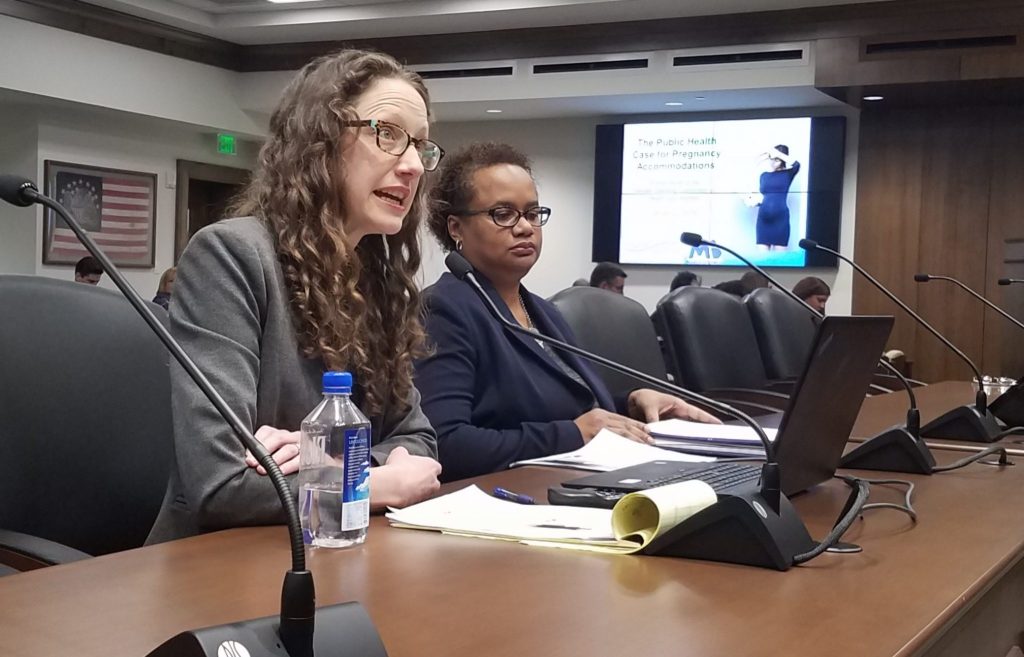We were honored to be invited by the Tennessee Senate Health & Welfare Committee to present data on the health benefits of providing pregnant workers with reasonable accommodations, when needed. We were joined by our partners at the March of Dimes, who highlighted Tennessee’s high preterm birth rate and persistent racial disparities. Together, we made the public health case for the Tennessee Pregnant Workers Fairness Act.
“No one in Tennessee should have to choose between a healthy pregnancy and their job,” said Elizabeth Gedmark, A Better Balance Vice President. “We must ensure that pregnant workers have access to the accommodations they need, like a stool to sit on or extra breaks, to remain healthy while continuing to support their families.”
According to the Tennessee Department of Health, over two-thirds of Tennessee’s new mothers worked during their most recent pregnancy. Among these mothers, two-thirds returned or planned to return to their job after giving birth. While many pregnant women are able to work throughout their pregnancies with no issues, some may need minor job modifications to remain healthy while continuing to support their families.
In 2017, over 70% of births in Tennessee were to mothers without a full college degree. These mothers may be more likely to work in positions that involve physical labor, like manufacturing jobs. Access to reasonable accommodations is especially critical for these workers, since physically-demanding work has been associated with an increased risk for preterm birth, low birth weight, and other health complications.
Reasonable accommodations also play a role in preventing preterm birth, which is one of the leading contributors to infant death in the U.S. The March of Dimes gave Tennessee a “D” grade on its 2019 preterm birth report card, reporting that 11.1% of babies in the state are born preterm. Shamefully, the preterm birth rate among Black women in Tennessee is 45% higher than the rate among all other women.
Like other health complications, preterm births can be incredibly costly. The average cost of a preterm birth in Tennessee is $57,000, including infant and maternal healthcare costs. In Tennessee, like in many other states, about half of all births are covered by Medicaid. Thus, ensuring pregnant workers receive the accommodations they need ultimately creates cost savings for the state and businesses by preventing serious health complications.
“We appreciated the opportunity to discuss this critical public health issue with lawmakers today, and we urge them to support the Tennessee Pregnant Workers Fairness Act, which would guarantee pregnant workers a clear right to reasonable accommodations, absent undue hardship on the business,” said Gedmark.








